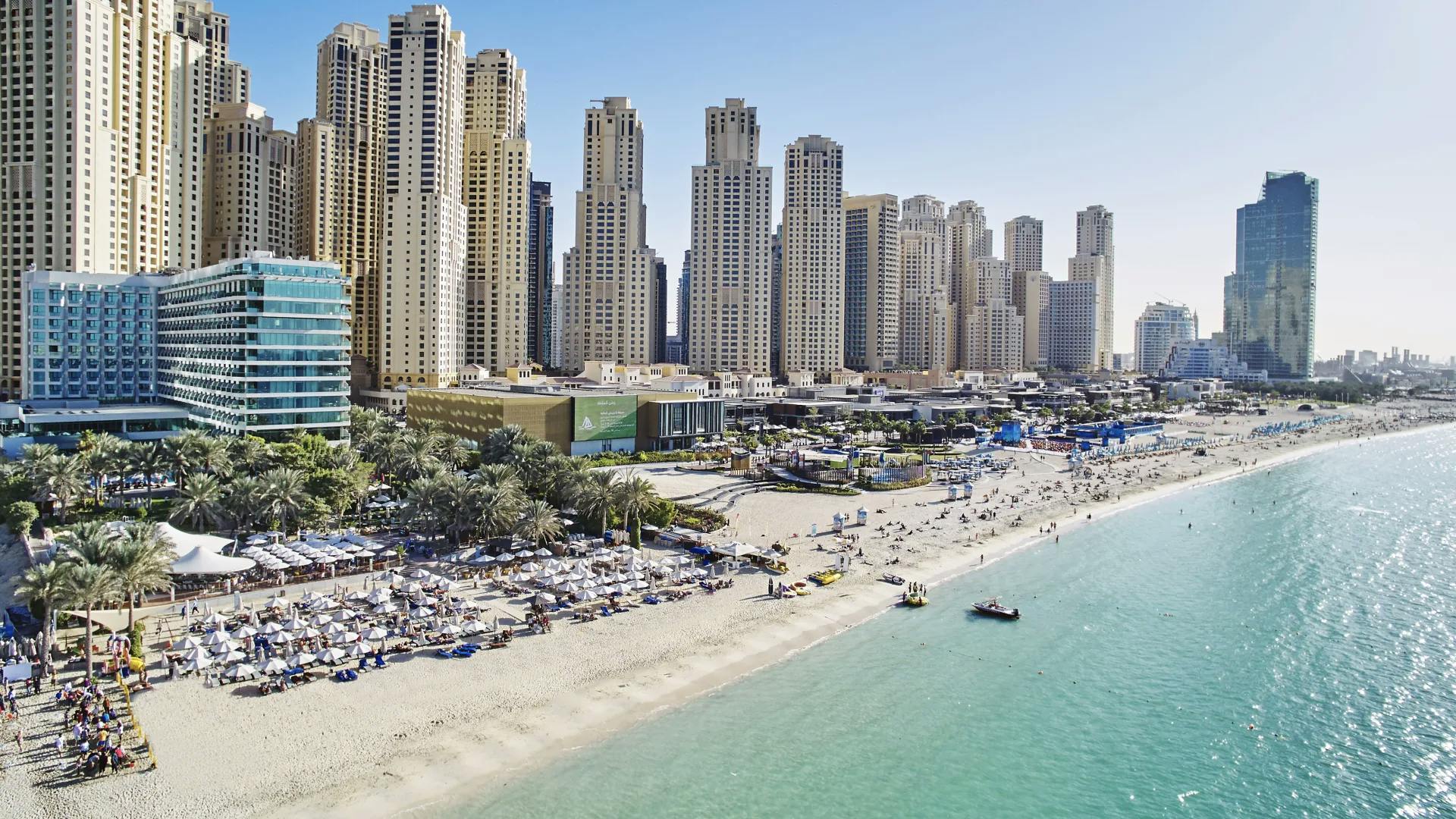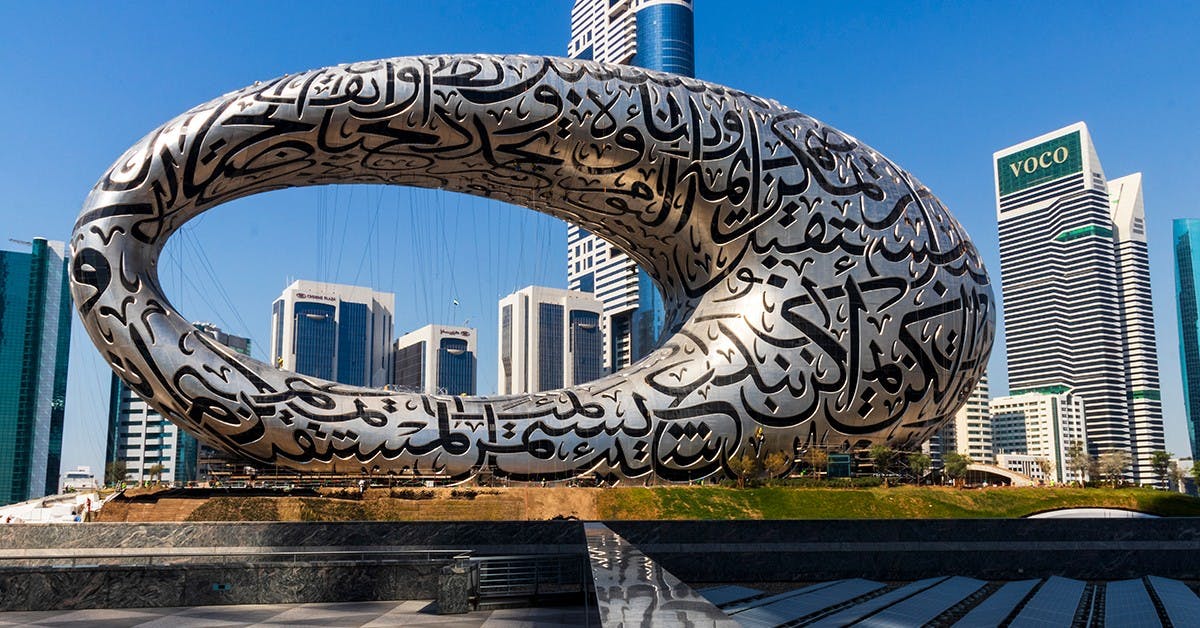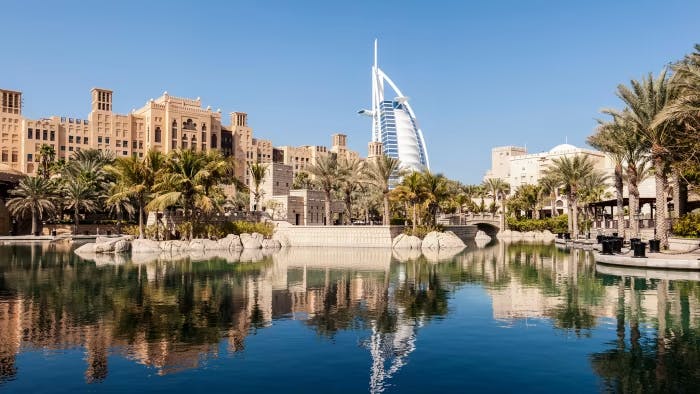Dubai’s Tax Landscape: Unveiling the Benefits for Businesses and Entrepreneurs
Understanding tax in Dubai involves delving into the intricate details of its corporate tax policies, VAT regulations, and exemptions. These financial frameworks are crucial for businesses navigating this dynamic economic landscape.

The United Arab Emirates (UAE) and, by extension, Dubai, offer numerous advantages to entrepreneurs and investors, with its progressive tax policies and business-friendly environment standing out in the global arena.
In this comprehensive article, we will explore the key aspects of Dubai's tax system, from corporate tax to VAT rules, highlighting the benefits and exemptions that make it an attractive destination for businesses looking to optimize their financial strategies.

An Overview of Dubai’s Tax System
Dubai’s tax system is built to create a favorable business environment while offering competitive tax rates. This approach makes the emirate an appealing choice for foreign businesses and investors seeking to minimize tax burdens.
Corporate Tax Rate
Dubai has introduced a corporate tax of 9% for businesses with taxable income exceeding AED 375,000. While this is relatively low compared to the tax rates in many other countries, it positions Dubai as an attractive location for business owners aiming to minimize their corporate income tax liabilities. This tax rate applies to businesses across various sectors, including trade, services, and manufacturing.
Federal Corporate Tax
The federal corporate tax, introduced by the UAE government, applies across the seven emirates. It covers businesses operating in Dubai and ensures a consistent tax regime throughout the UAE.
This federal corporate tax is designed to enhance the tax system’s transparency and alignment with international standards, making it a viable solution for businesses operating in the global market.
Corporate Income Tax on Free Zones
Dubai’s free zones provide significant tax advantages for businesses. For instance, businesses operating in these zones may benefit from 100% exemption on corporate income tax for a renewable period of up to 50 years. This exemption fosters entrepreneurship and attracts global investments to Dubai’s robust free zone economy.

Value Added Tax (VAT) in Dubai: An Overview
Since January 1, 2018, the UAE has implemented a Value Added Tax (VAT) system, introducing a tax on most goods and services. However, the VAT rate of 5% remains among the lowest in the world, ensuring minimal impact on businesses and consumers.
Taxable Goods and Services
VAT in Dubai applies to a wide range of goods and services, including retail, hospitality, and real estate transactions. Certain items, like healthcare services, education, and basic food products, are exempt from VAT or subject to zero rates.
VAT Refunds and Exemptions
Certain businesses, especially those involved in export activities, can benefit from VAT refunds. Additionally, businesses in free zones can claim VAT exemptions, depending on their operations. For example, companies in the Dubai International Financial Centre (DIFC) may qualify for VAT exemptions based on their activities.
VAT Return and Filing Obligations
Businesses must comply with VAT return filing obligations every quarter or year, depending on their turnover. Failure to file VAT returns can result in fines, penalties, or interest charges. However, many businesses in Dubai are exempt from VAT registration if their annual turnover is below the voluntary registration threshold of AED 375,000.
Tax Exemptions and Free Zones in Dubai
Dubai is home to numerous free zones, which play a significant role in attracting foreign businesses. These free zones provide tax exemptions, including corporate tax exemptions, VAT exemptions, and exemptions from import and export duties. Dubai has tailored free zones for various industries, including technology, healthcare, media, and finance.
Free Zone Companies and 100% Foreign Ownership
One of the major advantages of free zones in Dubai is the opportunity for 100% foreign ownership. Unlike in mainland UAE, where businesses must partner with a UAE national, companies in free zones can be fully owned by foreign investors. This setup encourages international businesses to set up operations in Dubai without the need for local partnerships.
Tax Exemption for Free Zone Businesses
Free zone companies are exempt from corporate tax for a specific period, which may be extended based on the regulations in place for each zone. Many free zones offer a 15 to 50-year exemption from corporate tax, making Dubai a highly attractive location for businesses seeking long-term tax efficiency.

Excise Tax: What Businesses Need to Know
The UAE has implemented taxes on specific goods deemed harmful to health or the environment. These taxes apply to goods such as carbonated drinks, energy drinks, tobacco, and electronic smoking devices.
Excise Tax Rates
The excise tax rates in Dubai are as follows:
- 50% on carbonated drinks
- 100% on tobacco and tobacco products
- 100% on energy drinks
- 100% on electronic smoking devices and liquids
These taxes are levied at the point of import or production, and businesses must ensure they comply with the applicable tax rates for the goods they sell.
Corporate Tax Return and Compliance
In Dubai, businesses are required to file corporate tax returns annually. The tax return must include the financial statements and a breakdown of taxable income, deductions, and exemptions.
Federal Tax Authority (FTA)
The Federal Tax Authority (FTA) is responsible for overseeing tax compliance across the UAE. Businesses must register with the FTA and obtain a tax registration number to operate legally. The FTA ensures that businesses adhere to tax laws, including those related to corporate tax, VAT, excise tax, and other tax-related obligations.
Taxable Income and Profits
Taxable income for businesses in Dubai includes the net profits earned from their operations. This includes income from services, sales, investments, and other business activities. The taxable profits are subject to the corporate tax rate of 9%, with exemptions and deductions applicable based on the business’s operations and location.
UAE Corporate Tax Law and International Standards
The UAE has made significant strides in aligning its corporate tax law with international standards. The introduction of corporate tax aims to meet the Organization for Economic Cooperation and Development (OECD) guidelines on base erosion and profit shifting (BEPS).
Transfer Pricing Rules
Dubai’s tax system includes transfer pricing rules, which ensure that transactions between related entities are conducted at arm’s length. These rules help prevent businesses from manipulating their taxable income by artificially inflating or reducing prices between subsidiaries or branches.
Tax Evasion and Penalties
Tax evasion is illegal and can lead to severe penalties under Dubai's tax laws. Businesses must ensure that they comply with all tax regulations, including the accurate filing of corporate tax returns and VAT returns.
Penalties for Non-Compliance
Businesses found guilty of tax evasion or failing to file tax returns on time may face penalties, including fines, interest charges, and potential legal action. The Federal Tax Authority (FTA) has the authority to conduct audits to detect non-compliance and levy penalties.
Benefits for Foreign Banks and International Companies
Dubai is an attractive destination for foreign banks and international companies due to its favorable tax environment, strategic location, and economic stability. Banks operating in the Dubai International Financial Centre (DIFC) benefit from a 0% corporate tax rate for up to 50 years, making it a global hub for financial services.
Foreign banks can operate in Dubai with minimal tax liabilities, allowing them to establish branches and offices to serve the growing demand for financial services in the Middle East, Africa, and Asia regions.
The Role of the Gulf Cooperation Council (GCC) in Tax Policy
The UAE is part of the Gulf Cooperation Council (GCC), which is a political and economic alliance of six Middle Eastern countries. The GCC plays a role in shaping regional tax policies, particularly in areas such as customs duties, VAT, and excise tax.
GCC Customs Union
As part of the GCC, the UAE has agreements with other member countries to implement common customs duties and regulations. This unified approach simplifies cross-border trade and makes it easier for businesses to operate across the GCC region.
Why Dubai Remains a Tax Haven for Entrepreneurs?
Dubai’s strategic location, competitive tax rates, and favorable tax environment make it a premier destination for businesses and entrepreneurs. The city’s low corporate tax rate, absence of income tax, and exemptions for free zone businesses offer unparalleled advantages for companies looking to optimize their tax strategy.
The UAE’s commitment to maintaining a transparent and business-friendly tax system, alongside its dynamic economy and high standard of living, ensures that Dubai will continue to attract businesses and investors from around the world. Whether you’re setting up a new business, expanding your operations, or looking to benefit from tax exemptions, Dubai offers a wealth of opportunities for growth, success, and financial prosperity.
For businesses looking to navigate Dubai’s tax policies, including VAT regulations, corporate tax return filing, and more, professional consultancy services like Strive Consultants can provide expert guidance to ensure tax compliance and maximize financial efficiency.
Contact Strive Consultants to learn how we can assist you in establishing your business in Dubai and navigating the UAE’s tax laws effectively.




